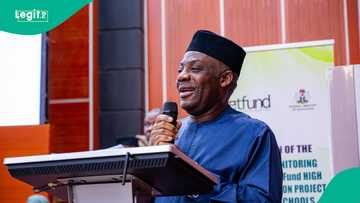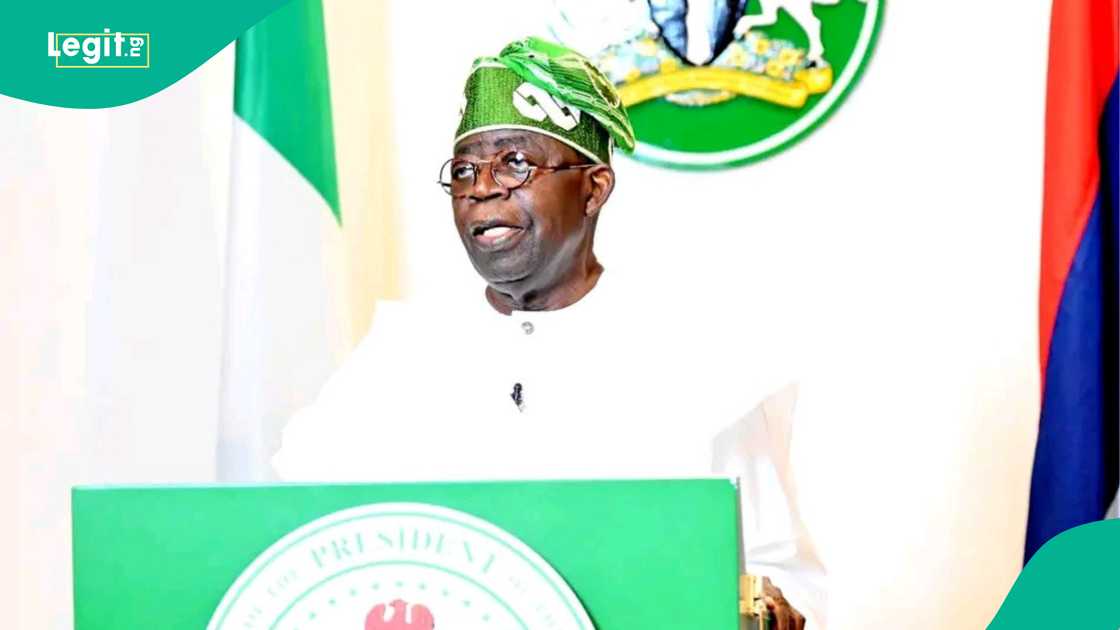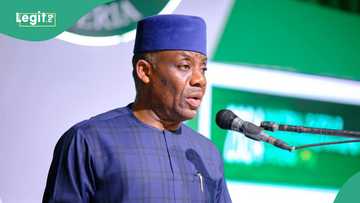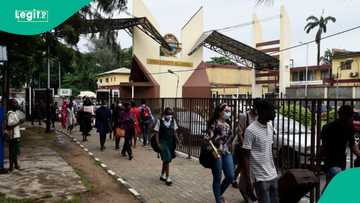FG Changes Name of Federal School, Introduces New Curriculum
- The federal government has unveiled a transformative overhaul of Nigeria’s technical education system, renaming all Federal Science and Technical Colleges as Federal Technical Colleges
- A streamlined curriculum featuring modern trade courses and reduced subject load aimed to equip students with industry-relevant skills for future employment
- The reform aligned with President Tinubu’s Renewed Hope Agenda and targeted boosting Nigeria’s economy through youth empowerment and vocational excellence
The federal government has announced a comprehensive curriculum overhaul and a rebranding of all Federal Science and Technical Colleges (FSTCs).
The institutions will now operate under the name Federal Technical Colleges beginning with the 2025/2026 academic session.

Source: Facebook
Dr Maruf Tunji Alausa, the honourable minister of education, alongside Professor Suwaiba Sa’id Ahmad, the honourable minister of state for education, disclosed the changes in a press release issued on 10th September 2025.
The initiative, titled Driving Skills, Shaping Futures, is designed to streamline learning, reduce academic overload, and align Nigeria’s technical education with global standards.

Read also
Content creation, bricklaying: Full list of 26 trades FG unveiled for technical education curriculum
Federal Technical Colleges to offer trade courses
Under the new structure, each Federal Technical College will offer between six and ten trade courses. Students will be required to take nine to ten subjects, including:
• One trade course
• Five or six general subjects (Mathematics, English Language, Physics, Chemistry, Biology, Citizenship and Heritage Studies)
• Two or three trade-related subjects
• One elective
The Ministry confirmed that 26 trade areas have been modernised to reflect current industry demands. These include:
• Solar PV Installation and Maintenance
• Fashion Design and Garment Making
• Computer Hardware & GSM Repairs
• Livestock Farming
• Beauty Therapy & Cosmetology
• Creative Media
• Social Media Content Creation and Management
• Leather Works
Other trades such as Welding & Fabrication, Auto-Mobile Mechanics, Mechanised Agriculture, and Furniture Making are also part of the revamped curriculum.
Speaking with Legit.ng, Imaan Muhammad, an educationist based in Nigeria, reacted to the policy:
“It is a smart move. The new curriculum adds modern trades like solar tech, digital media and smart farming. It also focused more on practical skill not just theory. If well implemented, it can help young Nigerians get real jobs.”
See the X post below:
Citizenship and heritage studies added
A notable addition to the curriculum is Citizenship and Heritage Studies, which integrates Nigerian History, Civic Education, and Social Studies. The subject is intended to instil national values and cultural awareness among students while they pursue technical competencies.
Dr Alausa stated that the reform aligns with President Bola Ahmed Tinubu’s Renewed Hope Agenda, which aims to grow Nigeria’s economy to one trillion dollars by 2030.
He emphasised that the new curriculum would better equip students to compete globally, secure employment, and contribute meaningfully to national development.
The Federal Ministry of Education has pledged full support to schools, parents, and students to ensure a seamless transition to the new system. A detailed guide listing the new subjects and trade areas has been made available to aid implementation.

Source: Facebook
FG introduces new curriculum, includes history
Legit.ng earlier reported that the Federal Government of Nigeria introduced a revised national curriculum to take effect from the 2025/26 academic year.
Under the new framework, History was reinstated as a compulsory subject for pupils from Primary 1 through Junior Secondary School 3 (JSS 3).
Officials confirmed that the curriculum overhaul would streamline the number of subjects taught across primary, junior secondary, senior secondary, and technical education pathways.
Proofreading by Funmilayo Aremu, copy editor at Legit.ng.
Source: Legit.ng




